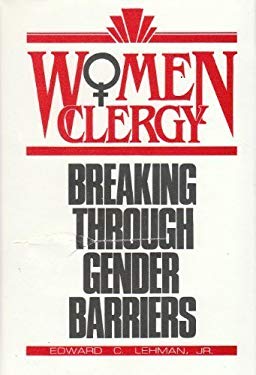"Using attitudinal data from his panel study of lay church members, elders (lay leaders), pastors, and clergy in specialized ministries of the United Presbyterian Church, Lehman asked: how will the churches respond to clergywomen? The author answers his substantive question as well. . . . The case of the clergywomen sheds light on the nature of prejudice and how prejudicial attitudes can change. . . . This is an appealing sociological theory of attitude change, because it highlights the interplay between external constraints and purposive actors who to some extent create their own fate. . . . This book is well written, and Lehman uses simple, clear terms to describe his methods and interpret his results. The study should be of interest to scholars in women's studies, sociology of the professions, sociology of religion, and social psychology, as well as to all those concerned with the future of the church and the place of women in it." --Sherryl Kleinman, Contemporary Sociology

